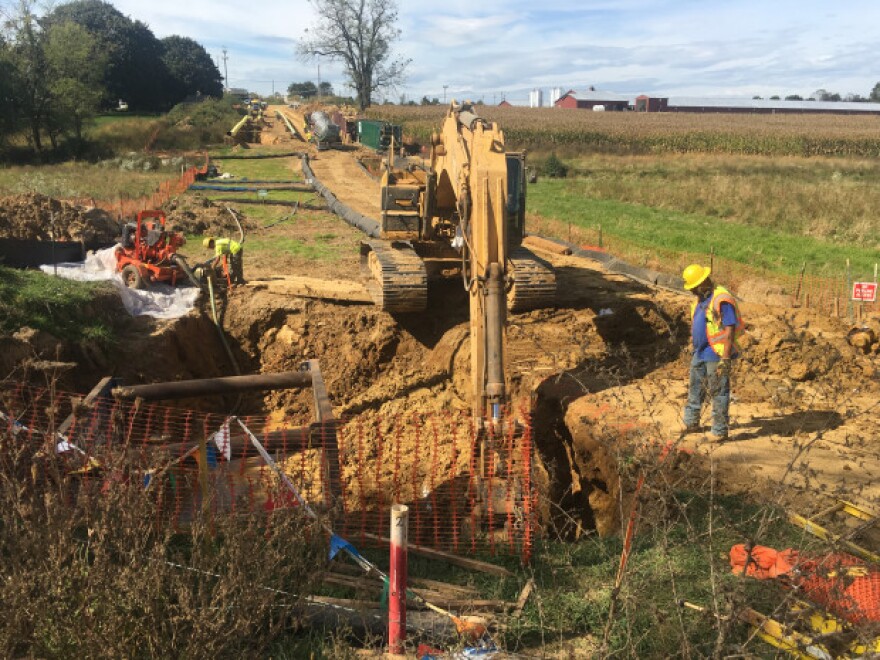STATE IMPACT PENNSYLVANIA - More than 100 spills have occurred during the construction of the Mariner East 2 pipeline, and now, another troublesome spot has emerged in Delaware County outside Philadelphia.
State officials say four spills have taken place in the past week at a construction site in Middletown Township. The incidents, known as “inadvertent returns,” occur when pipeline workers drill horizontally underground, and the drilling mud they use leaks.
The Department of Environmental Protection said more than 8,000 gallons of the mud were released and cleaned up in the first three spills. The mud includes water and bentonite clay, and it did not cause any environmental impacts, DEP spokesman Neil Shader said in an email.
When the fourth spill happened Monday, the agency required work to stop.
Shader said the department will have to approve the pipeline developer’s plan to restart work.
Lynda Farrell, executive director of the Pipeline Safety Coalition, has talked to a resident at an apartment complex nearby.
“I can hear from the gentleman’s voice that it’s very upsetting and has absolutely disrupted his quality of life for the time being, at least,” she said.
Farrell said the ongoing problems with spills are a sign the permitting process for pipelines needs to change. Other spills have affected waterways, including a Lebanon County creek last month.
“People are continuing to be impacted, watersheds are being impacted, land is being impacted,” she said.
The latest spills come in the wake of DEP fining pipeline developer Sunoco/Energy Transfer Partners $12.6 million in February after shutting down all work on the project because of repeated permit violations. The stoppage lasted for a month.
Lisa Dillinger, a spokesperson for the pipeline company, wrote in an email that horizontal drilling offers the best way to minimize environmental impacts, bypass culturally sensitive areas and avoid traffic disruption.
She said ingredients in the drilling mud must be approved by DEP and meet safe drinking water standards.
“As part of our permits with the DEP, we have plans to monitor for inadvertent returns, contain any bentonite and water, and recover it,” Dillinger said.
She said the spills are not unexpected, as the pipeline’s state permits include a plan for the company to respond and contain them.


